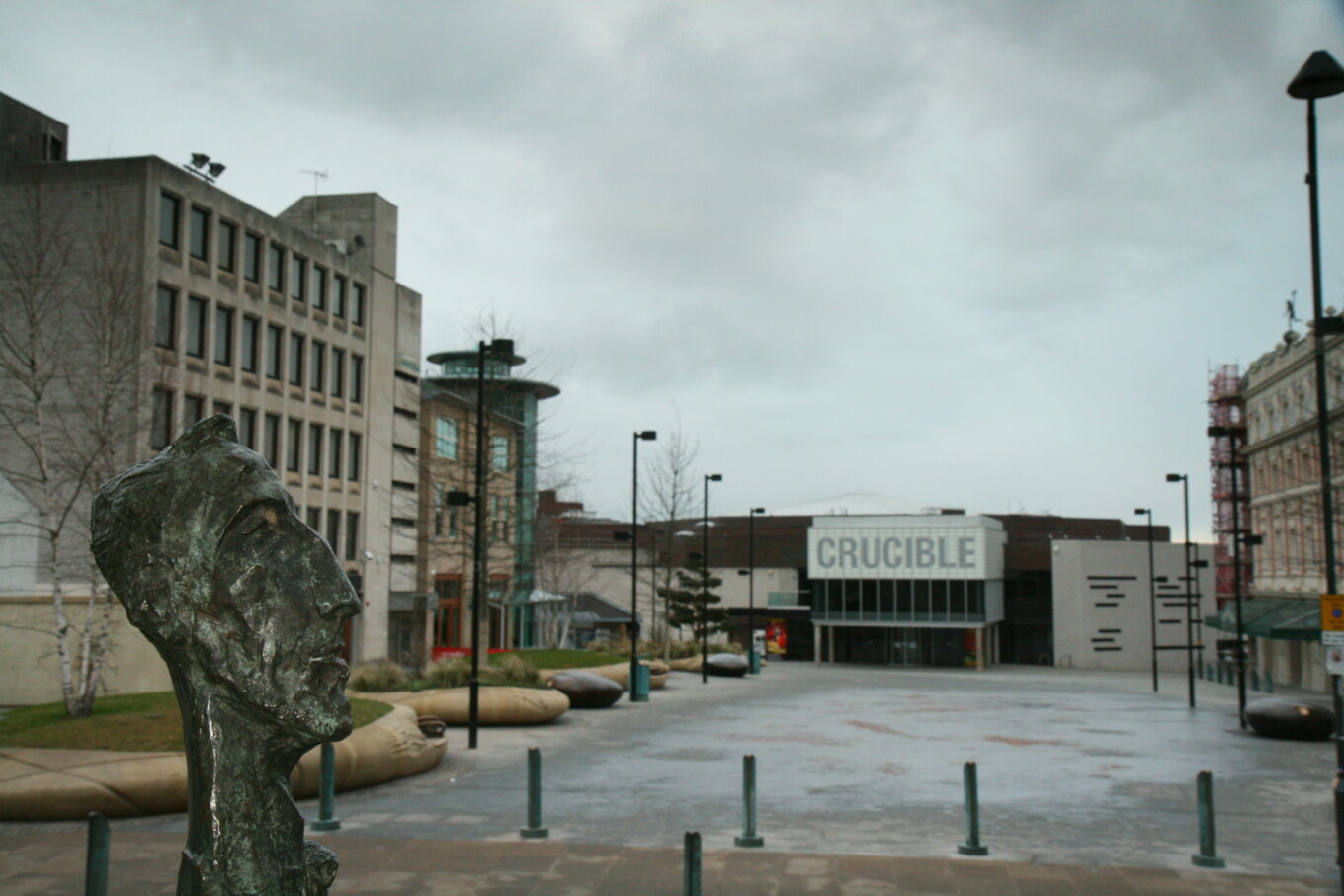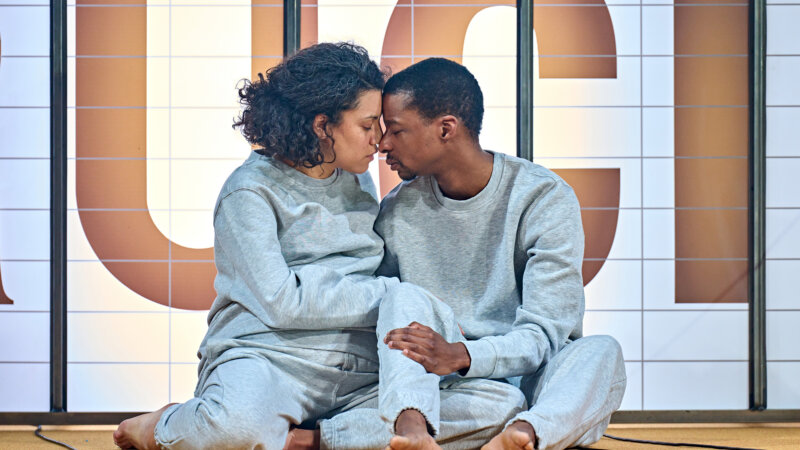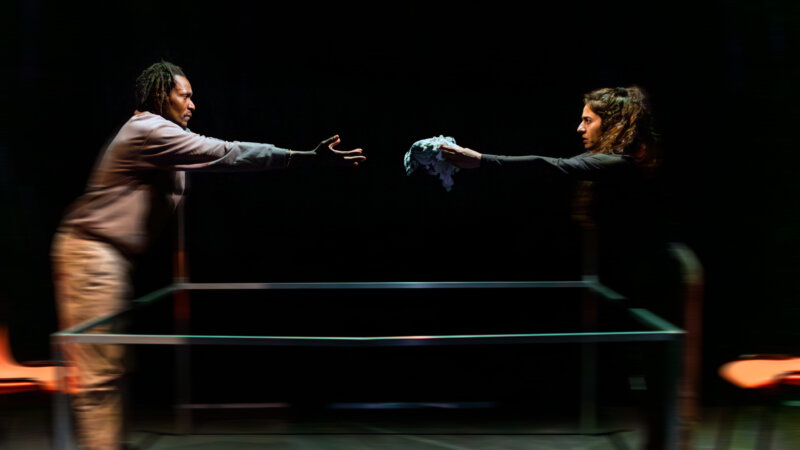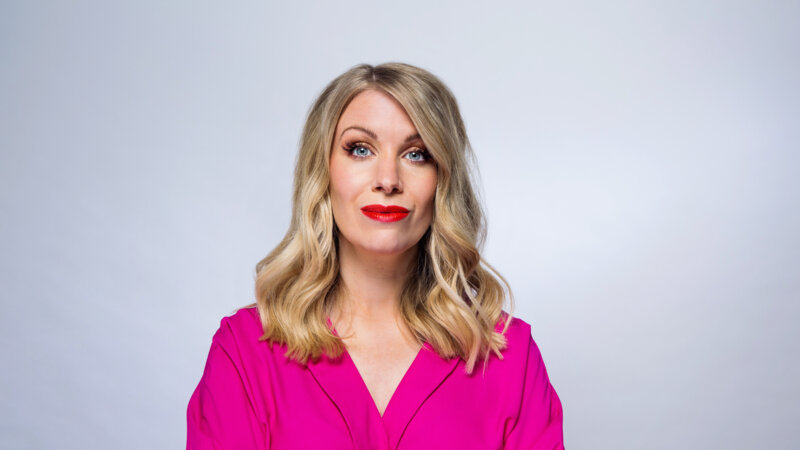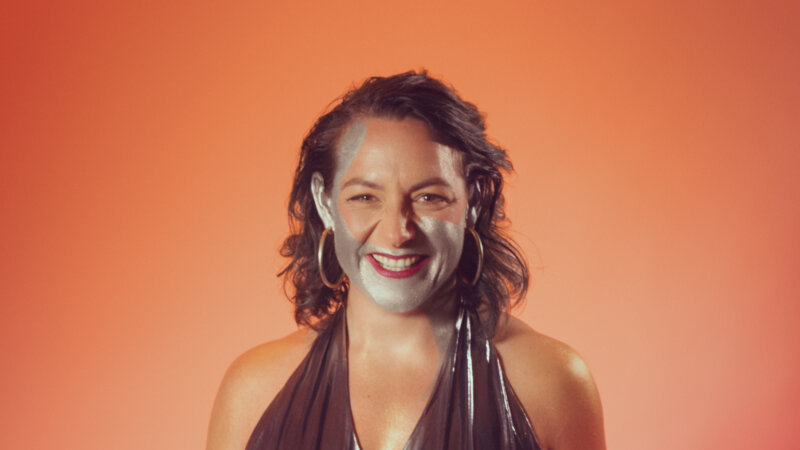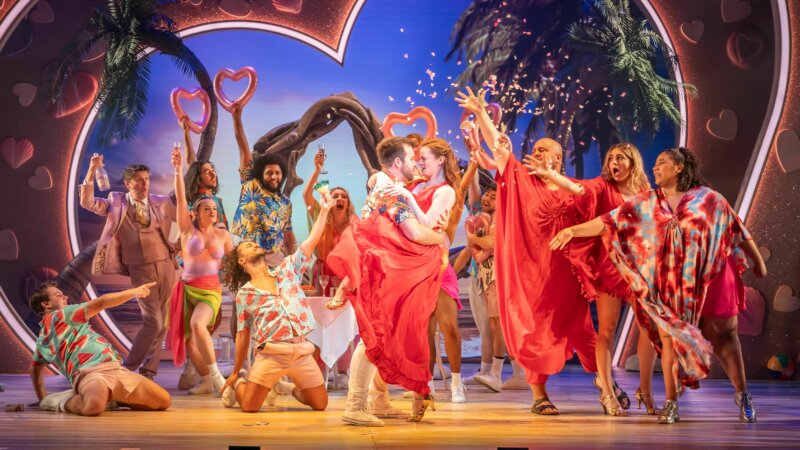Benjamin Wilson "Art and culture has such an influence": Disabled actor talks theatre accessibility
"It made me feel like a second-class member of the audience. Like an afterthought.": Blind actor and Agent of Change speaks to Now Then about accessibility in theatres.
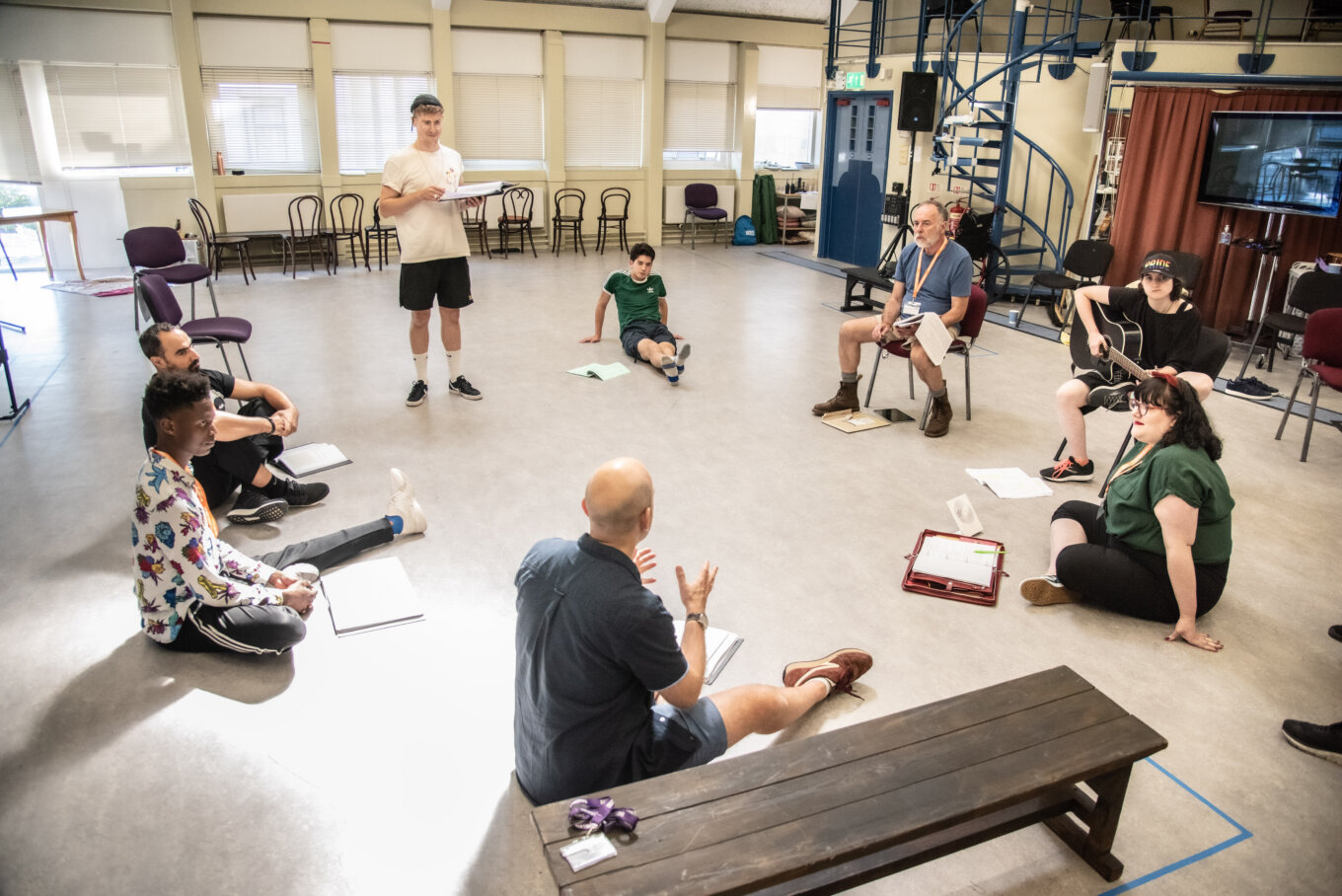
Theatre should be an experience that everyone can enjoy, but many disabled people find going to the theatre a disappointing and unfulfilling experience. This can be due to difficulties in accessing the building, lacklustre and poor quality provisions to make performances accessible for disabled audience members and a lack of representation on stage.
Sheffield Theatres are once again pushing the boundaries to make theatre accessible to disabled actors, creatives and audience members with their traditional Shakespeare autumn opener, Much Ado About Nothing - a co-production with Ramps on the Moon, a consortium of theatres across England that places disabled talent centre stage.
Now Then spoke to Benjamin Wilson, an actor who lost his sight in his early twenties and who spends his time on stage, theatre making and acting as an audio description consultant. He is also the Ramps on the Moon Agent For Change at Sheffield Theatres, acting as a consultant to ensuring that disabled audiences are able to experience the enjoyment, emotion and excitement of a visit to the theatre.
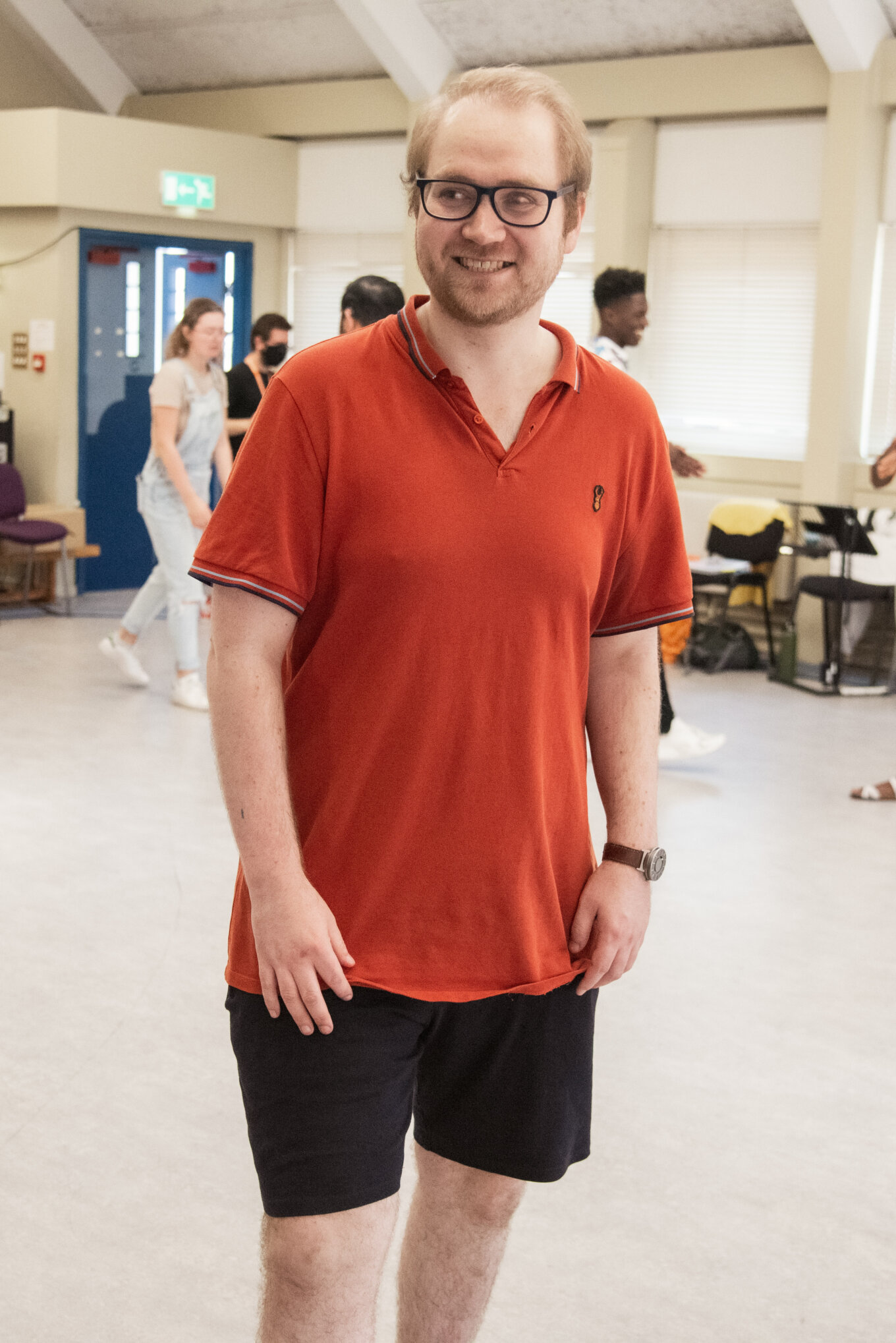
Benjamin kindly took some time out from rehearsals for Much Ado About Nothing to talk to us about accessibility, the experience of disabled people at the theatre and why plays written over four centuries ago are ideal for audio description.
With Much Ado About Nothing opening the Sheffield Theatres Autumn Season on 9 September 2022, how is the last week of rehearsals going?
It’s hectic. We’ve overran a little this evening, but we have just about got through the first act today.
Much Ado About Nothing is a great Shakespeare comedy, probably one of his best comedies, which is not only laugh-out-loud funny, but also has a real depth and, at times, a genuine darkness to it. It’s the story of reluctant love, with some terrific, fast-paced and sharp dialogue between the characters.
Our production is co-produced between Sheffield Theatres and Ramps on the Moon, which has a diverse cast of disabled and Deaf performers, and has audio description and British Sign Language integrated into the show, making every performance creatively accessible to a diverse audience.
It also provides a depth of representation on stage by utilising a terrific cast of disabled actors, who have a range of visible and invisible impairments.
It’s a really interesting and incredibly fun way to do Shakespeare. What we are bringing to the stage is a fun, brilliant, joyous, dramatic version of Much Ado About Nothing with all of the essential elements in place, but with a fresh, new way of looking at it.
This is a co-production with Ramps on the Moon, which furthers inclusion in theatre. How do they aim to achieve that?
Ramps on the Moon is a consortium of seven theatres in England who have worked together for around six or seven years.
There are two main ways in which they further inclusion of disabled performers and make theatre accessible for disabled audiences. Firstly, it produces a show every year which will tour around the theatres in the consortium and highlight the talent of a predominantly disabled and Deaf cast of artists and creatives.
Not only do they encourage representation of disabled people on stage and provide a platform for their talent, they also push the creative boundaries to allow disabled audiences to enjoy theatre by looking at other ways to make the production accessible, rather than just having the usual platforms of a British Sign Language (BSL) interpreter in the corner of the stage or a traditional audio description delivered via headsets.
Whilst those are two ways to include disabled audiences, they are the platforms which theatres seem to have settled on and there needs to be thought around different, more engaging methods tell our stories accessibly.
Secondly, they use their shows and wider projects as the inspiration for establishing and embedding positive change not only in the theatres with the consortium, but also in theatres across the country.
Working within those organisations, Ramps are educating theatre makers to make more positive changes and for those changes to become embedded in the culture of British theatre.
What do you think needs to change or develop to better assist disabled actors and to allow them equal opportunities when compared to non-disabled actors?
There are lots of ways. Cast us. Employ us. Give us more jobs. Many mainstream organisations are so worried about getting things wrong with disabled people that they don’t do anything.
The biggest barrier is them taking the first step. Once they have taken the plunge, it becomes so much easier.
It’s also a lot about collaboration. Talking to disabled actors, listening to their experiences, their ideas and them sharing their views about how things can work for them is essential.
More accessible rehearsal spaces would also certainly assist, and theatres can make the working environment and the culture more welcoming and inclusive.
If they start with those basic building blocks, the rest will follow. For me, as a blind actor, there is usually environmental assistance that I require, and for me that is part of my everyday life.
I can forgive someone not initially putting something in place to assist in terms of accessibility if their culture and attitude is right. We all learn from each other and we can all teach each other.
But where there is not that culture and attitude there, when the environment is wrong, it has the potential to become unworkable and small issues can soon become insurmountable in terms of accessibility for actors and audiences alike.
What do you think needs to change to make theatre more accessible for disabled audience members?
I am a big believer that access needs to be done creatively or innovatively. The traditional approaches to accessibility, audio description, captioning and BSL interpreters have led to many theatres becoming entrenched in using those methods.
But theatres need to throw out the rule book on these and need disabled artists and creatives (on all levels) to be more involved in how their stories are told to disabled audience members.
I lost my sight in my early twenties. Before I became blind, I had been through drama school, I was a regular at the theatre and I was passionate about the art form. When I lost my sight, I had to use audio description and I felt incredibly let down by it.
I want to make it clear that I was not let down by those who deliver audio description They work incredibly hard and are often given very little guidance, support or assistance in creating the audio description, but that part of the show is so very often left to that one person and the other cast and creatives often give no thought to it at all.
It made me feel like a second-class member of the audience. Like an afterthought. Like a member of part of the audience that were not included in the thought process in putting together the production and who were not really included as a member of the audience.
What has come across in my experiences is that many directors haven’t even listened to the audio description for their shows. They don’t even know what a blind and visually impaired audience member will experience when seeing their show. The description often bears no relation to the show at all, and it can be so jarring, making it incredibly difficult to enjoy the show and to remain engrossed in a piece of theatre.
Do you think that writers and directors also need to bear in mind the needs of disabled people not just in the roles that they create, but also in terms of how they write, for example, bearing in mind that, BSL is actually a Deaf person’s first language?
I think that disability awareness is incredibly important. Theatre creatives can’t speak for the communities that they represent without speaking to those communities.
I have had the opportunity to work with Deaf actors and it has been wonderful to learn from them. People think of BSL as an access tool, but it is a living, breathing, modern language like any other.
That is why it is so exciting to work on this production; we have main characters interacting with each other where one of them uses English as their first language and the other uses BSL as their first language. We are literally translating Shakespeare’s words into another language.
It is about putting on a bilingual production which integrates different languages seamlessly.
In many ways, Shakespeare is ideal for this type of production. His language lends itself so well to audio description as it is very descriptive in itself. “Is this a dagger I see before me”, “I will bite my thumb at them, which is a disgrace to them, if they bear it"... This is, essentially, pre-written audio description integrated directly into the play, and that is exactly what we are trying to achieve in terms of accessibility.
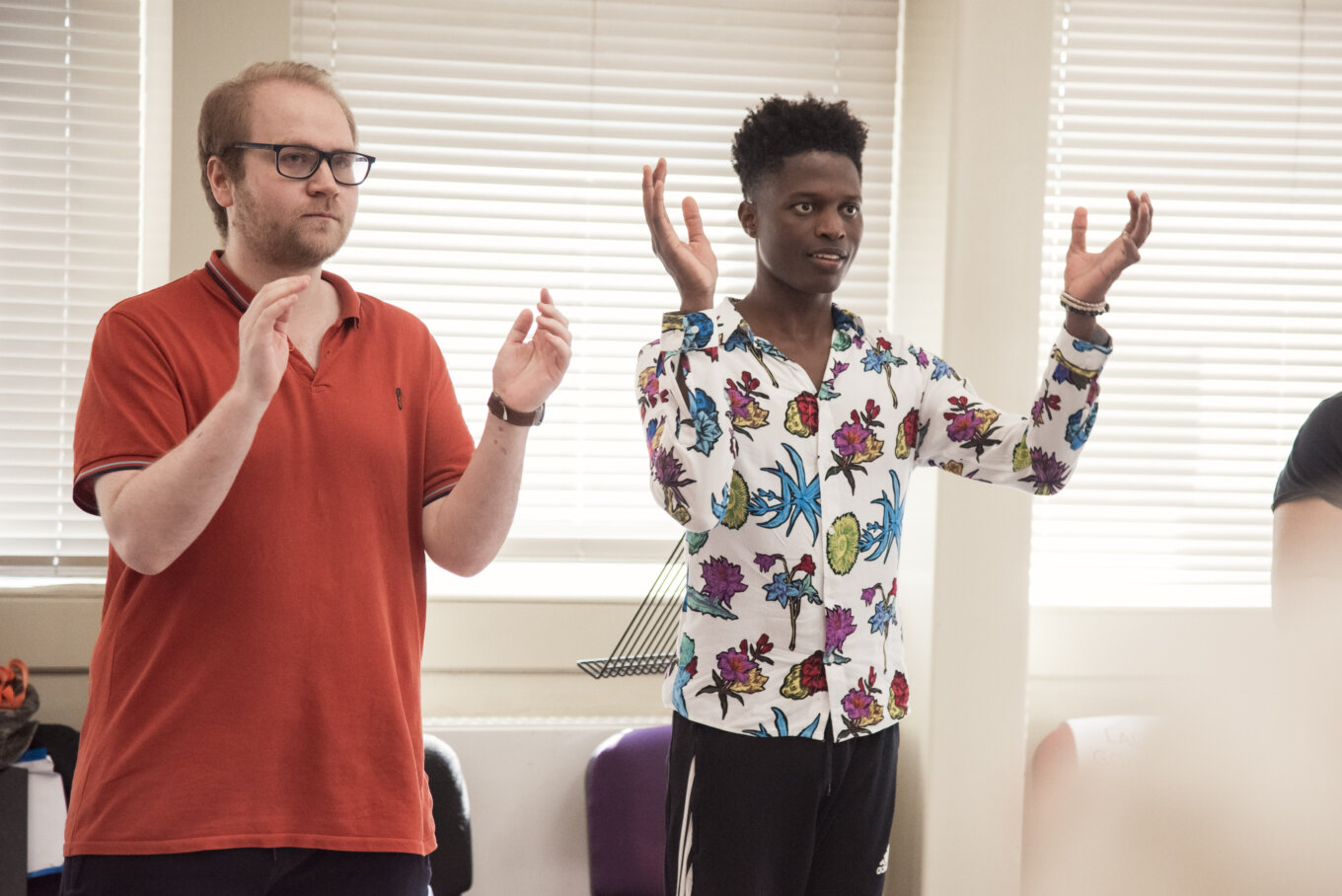
You are the Agent for Change at Sheffield Theatres. What does that involve and what does Sheffield Theatres do that other theatres could learn from?
I think what Sheffield Theatres does well, especially through their work with Ramps on the Moon, is that they just get on with it and make things happen. They already have a lot of accessible performances for most productions, but they also have an inspirational attitude that many theatres could benefit from emulating.
In Much Ado About Nothing, Robert Hastie (Sheffield Theatre’s Artistic Director) has created an inclusive production on stage which includes methods of inclusion for the audience not just in certain performances, but in every single performance throughout the run.
As an Agent for Change, it means having a disabled voice in the senior hierarchy of a theatrical organisation and it makes a huge difference. What it also means is that is that there is always someone there who never forgets about access requirements, who never allows disabled access to slip down the agenda or be left off the agenda completely.
It is about ensuring more diversity in the decision makers. We need the best non-disabled artists to get better at placing inclusivity in theatre and to educate themselves. We need to get better at these issues becoming as commonplace as thinking about the costumes or the sound and lighting designs.
I love my job as an Agent for Change, but we can’t just consult forever. We need to have these issues integrated permanently and allow these issues to thrive in the decision-making process. We need to give the platform to ourselves and our audiences.
In terms of my role in Sheffield Theatres, there are many small changes that we have implemented that people may not notice, but there are two main goals I hoped to achieve in taking this position. I wanted more engagement with disabled artists on and off stage, for theatres to place disabled people in every stage and at every level of decision making.
I try to make, build and maintain lasting relationships so that I am, in essence, turning them into Agents of Change in their own way, so that the voice of disabled people can continue to be heard moving forward. I have to say that I am really proud of what we have achieved so far.
Secondly, I wanted to improve the artistic quality of the accessible performances. This included ensuring that the number of BSL-interpreted performances, captioned and audio-described performances needed to be considered and how frequently they were available to disabled audience members.
But I also wanted to look at other ways in which that could be achieved, and Sheffield Theatres are very much at the forefront of this, providing room for artistically satisfying integration of accessibility in their productions, including having BSL interpreters integrated into the show, and creatively satisfying actor-led audio description.
Do you think that there is now a growing representation of disabled people on TV with programmes such as “The Last Leg” and artists such as Rosie Jones being more prolific, and is that growing representation translating to theatre?
There is a shift happening, but it is still nowhere near being representative of the 20% of the population who are disabled people. Representation is still around 1%, perhaps even lower when it comes to writers, directors and off-screen talent, but it is certainly a step in the right direction. It normalises the creativeness and brilliance of disabled people, and shows that we are living exciting and fulfilling lives. The Last Leg is terrific as it shows disabled people just having fun, which is important. It provides disabled people with visibility, role models and on-screen representation.
I became disabled later in life, and prior to losing my sight, I had lived a lot of my life without being exposed to disabled stories. When I went blind, I assumed it was the end of my life as I knew it, of my social life, which I have subsequently discovered was not the case, but I believe that being exposed to those types of stories would have made a significant difference to my life at that time.
When I look at stories for my own work, I look at it not just from the point of view of disabled people but from the viewpoint of people in the audience who will find themselves disabled later in life. That is where art and culture has such an influence and where it can create a relationship with, and a positive mentality around disability. We can define and redefine a more realistic cultural understanding.
The reality is that disabled people are missing from the cultural canon of British theatres – they are generally viewed as either Richard III or Tiny Tim. That is why it is so important that disabled people can reclaim our rightful place in the narratives we all share.

